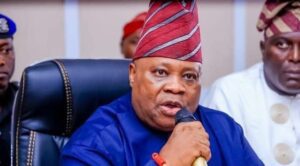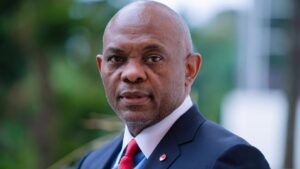Petrol subsidy removal: Poverty to rise in Nigeria without cash transfer programme — World Bank
…Backs forex unification policy
…Adopt multidimensional approach to end FX crisis — NECA
By Ibiyemi Mathew
Following the impact of the removal of fuel subsidy, the World Bank has predicted an increase in the level of poverty in Nigeria.
In Q1 2023, Nigeria’s economic growth had weakened, and real gross domestic product (GDP) growth fell from 3.3 per cent in 2022 to 2.4 per cent year-on-year (y-o-y) on the backdrop of the fiscal, monetary, and exchange rate policies, including the naira redesign program by the Muhammadu Buhari-led administration.
However, upon assumption of office, President Bola Ahmed Tinubu has opted to take a different policy direction to chart a new course and revive the economy. With the implementation of the policies of the new president, have been hardships that are becoming more tedious as days go by for Nigerians.
Amidst this, the World Bank has expressed its support for the Federal Government’s decision to remove subsidies and unify the country’s exchange rate.
During an event organised by the World Bank to assess Nigeria’s economy over the past six months on Tuesday, the World Bank Country Director for Nigeria, Dr. Subham Chadhuri, emphasised that although the policy would be painful, it is essential for rebuilding the nation’s economy.
Dr Subham Chadhuri further urged the Federal Government to dish out paliatives to cushion the effects of the policy.
“The current move by the Government to implement long-anticipated reforms such as the removal of costly and opaque petrol subsidy, and efforts to harmonise the multiple FX windows, are timely and crucial to set Nigeria on the path of economic growth. These reforms should be accompanied by compensatory actions to mitigate the short-term impact on the poor.
“Compensating transfers will be essential to help shield the most vulnerable Nigerian households from the initial price impacts of the subsidy reform, as without compensation, many households could be pushed into poverty by higher petrol prices and have to resort to coping mechanisms with long-term adverse consequences.
“Nigeria should now seize the opportunity to implement a robust, large-scale cash transfer program to provide quick relief to the poor, near-poor, as well as low-income households which are most directly affected by higher petrol prices, as part of a broader compact to redirect scarce fiscal resources towards development priorities,” Dr Shubham Chaudhuri said.
“The government has made a welcome, bold start to implement the critical macro-fiscal reforms needed to address the persistently high inflation and low fiscal revenues hindering economic growth. Deepening and sustaining these changes is imperative, to enable Nigeria to break out of the cycle of macroeconomic instability, low investment, sluggish economic growth, escalating poverty, and fragility.
“Having created momentum, the government has the opportunity to undertake further comprehensive reforms encompassing a range of complementary measures, such as lifting the FX import restrictions which continue to distort the FX market,” said Alex Sienaert, World Bank Lead Economist in the Nigeria Development Update June edition issued by the World Bank yesterday.
Meanwhile, the Nigeria Employers Consultative Association (NECA) has called on the Federal Government to adopt a multidimensional approach to address the foreign exchange crisis.
The Director-General of NECA, Wale-Smatt Oyerinde, called on the Federal Government to work towards boosting oil production to earn more revenue in foreign currencies.
“We want to call on the current administration that for you to address the issue of forex; you must take a multidimensional approach while we focus on dealing with the oil theft in the Niger Delta, we should also focus on dealing with the rapid increase in oil production so that we can meet our quotient quotas,” he said.




